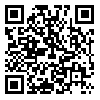Volume 10 -
IJMEHM 2017, 10 - : 131-140 |
Back to browse issues page
Download citation:
BibTeX | RIS | EndNote | Medlars | ProCite | Reference Manager | RefWorks
Send citation to:



BibTeX | RIS | EndNote | Medlars | ProCite | Reference Manager | RefWorks
Send citation to:
Aminizadeh M, Arab M, Mehdipour R. Relationship Moral Courage to Moral Distress in Nurses the Intensive Care Unit. IJMEHM 2017; 10 :131-140
URL: http://ijme.tums.ac.ir/article-1-5954-en.html
URL: http://ijme.tums.ac.ir/article-1-5954-en.html
1- Kerman University of Medical Sciences, Kerman, Iran
Abstract: (7231 Views)
Nurses in the intensive care unit face a variety of ethical issues that can lead to moral distress. Nurses need moral courage for correct moral performance in a state of moral distress. The aim of this study was to investigate the relationship between moral courage and moral distress in nurses. The descriptive-analytic study of correlation type which aimed to investigate the relationship between moral courage and moral distress in nurses. A total of 310 nurses from special units of educational hospitals in Kerman were selected by census method. The tools Sekerka's moral courage and Corley's moral distress were used to collect data. Data were analyzed by descriptive and analytical tests of SPSS version 24. Mean score of moral courage of nurses was 42.71 ± 9.67. Moral courage was the highest in moral agent. The mean of moral distress was 56.03 ± 18.21 and the most moral distress was in the dimension of errors. There was a significant and negative relationship between moral courage and moral distress (R = -0.166; p = 0.003). Moral courage was different in position, type of department, and marital status. Moral distress differed only from type of department. The results of study indicated a significant and negative relationship between moral courage and moral distress. Strengthening the moral courage of nurses plays an important role in controlling and reducing moral distress. Therefore, nurses can reduce their moral distress by reinforcing moral courage and, instead, increasing the quality of care for patients.
Type of Study: Research |
Received: 2017/11/19 | Accepted: 2018/02/12 | Published: 2018/03/17
Received: 2017/11/19 | Accepted: 2018/02/12 | Published: 2018/03/17
Send email to the article author
| Rights and permissions | |
 |
This work is licensed under a Creative Commons Attribution-NonCommercial 4.0 International License. |





